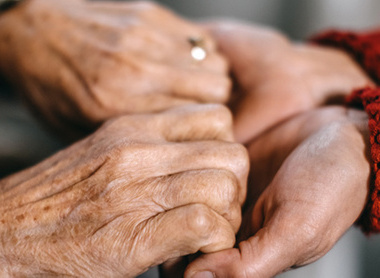what is grief and how does it affect us?
Grief doesn’t just come from the death of someone you know. Intangible or ambiguous losses can affect us just as much. Let’s take a deeper dive into what grief is and how you may experience it.
Coping with grief can be complicated and lonely. We're here to help you navigate grief and support those around you.
Grief is a universal emotion that everyone experiences at some point in their life. While it’s most commonly associated with the death of someone we know, it can also come from traumatic events, when our personal safety is threatened, when our belief system is challenged, or when something happens outside of our control.
There’s no one way to grieve. It affects everyone differently, and it takes everyone a different amount of time.
Common symptoms include depression, anger, insomnia, muscle aches and pains, and headaches. You may experience these all at once, or at different points in your grieving process.
In this section, you’ll find advice on how to navigate grief, come out stronger, and support those around you who may be grieving themselves.

Grief doesn’t just come from the death of someone you know. Intangible or ambiguous losses can affect us just as much. Let’s take a deeper dive into what grief is and how you may experience it.

It’s not always easy to let go of feelings of grief or sorrow. In this post, we’ll explore how you can cope with feelings of grief and sorrow, and move forwards, without lessening your experience.

Traumatic events affect everyone differently. And sometimes, it doesn’t have to be one big event, it can be a series. Here are some tips to help you move forwards, whatever traumatic event you’ve experienced.
We support past and present members of the Institute of Chartered Accountants of England and Wales (ICAEW), ACA students, ICAEW staff members, and the family and carers of members and students.
Not sure if you’re eligible? Use our interactive eligibility tool to check if you or your family could get support.
Most of our services, including mental health support and legal advice, are provided free regardless of your financial circumstances. For our financial grants, we will conduct an assessment, looking at your income and assets, to determine what help we can provide.